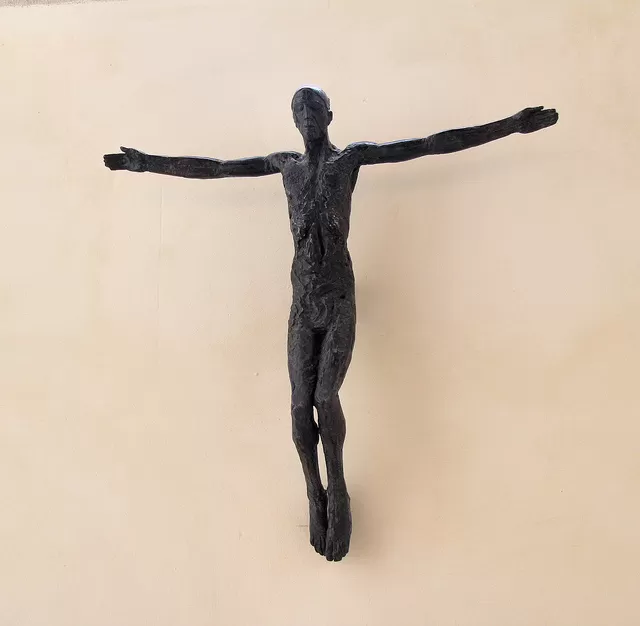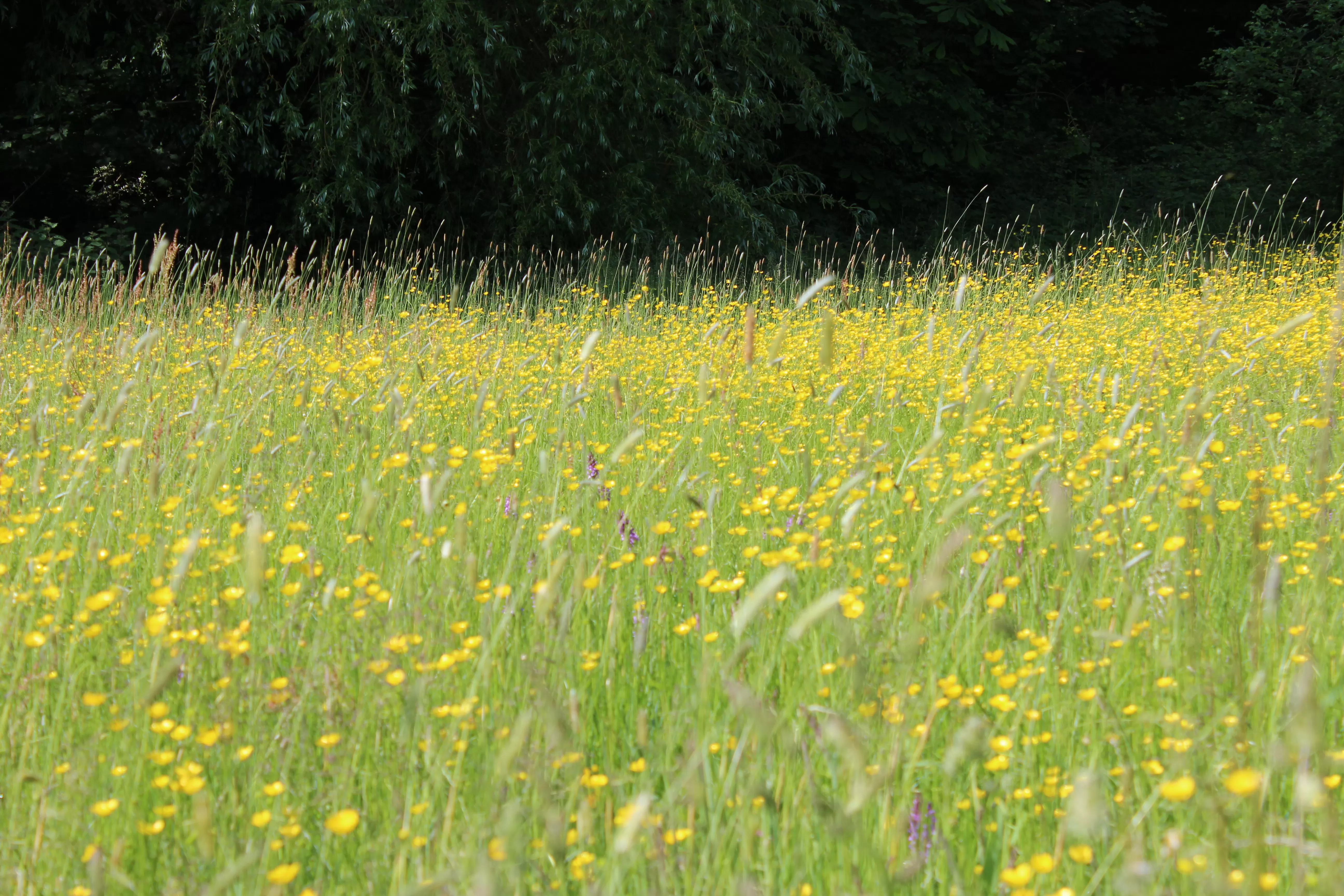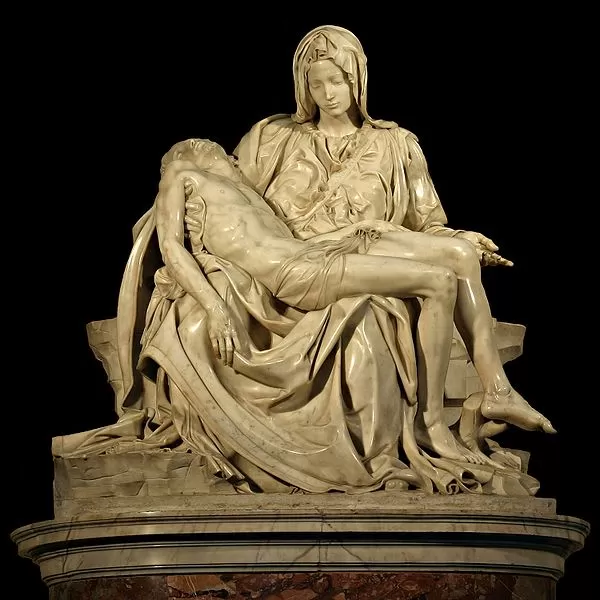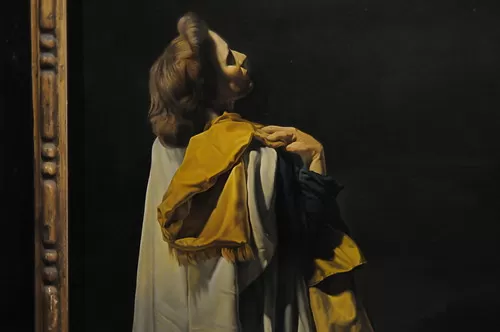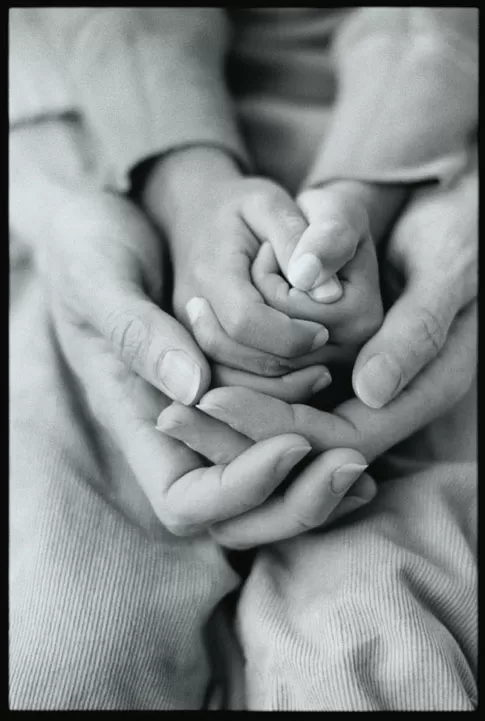Good Friday is a day of profound reflection for Christians worldwide, commemorating the crucifixion of Jesus Christ. Poetry offers a powerful medium to explore the emotional and spiritual weight of this day. This article delves into a Good Friday poem sequence, inspired by Jesus’ seven last words from the cross, offering a meditative journey through his final moments. These poems, paired with scripture readings and artistic imagery, provide a poignant exploration of themes like forgiveness, sacrifice, and enduring love.
Contents
The First Word: Forgiveness
Reading (from Matthew 27:27-37 and Luke 23:33-34)
The gospel accounts depict the brutal scene of Jesus’ crucifixion. Soldiers mock, beat, and ultimately nail him to the cross. Yet, even in this moment of unimaginable pain, Jesus utters his first words: “Father, forgive them, for they do not know what they are doing.”
Father forgive them, for they know not what they do
(Poem inspired by the first word)
We falter, blind, our actions unforeseen,
A careless word, a butterfly crushed beneath a heel.
What storms we brew, what futures we destroy,
Unknowing, unseeing, in our careless employ.
Jesus, knowing this, our shadowed hearts,
Embraced the cross, the piercing, brutal darts.
Forgiveness flowed, a river strong and deep,
Washing over us, while we, unheeding, sleep.
Response from Psalm 22: 3-5
Yet you are holy, dwelling in the praises of Israel. In you our fathers trusted; they trusted, and you delivered them. To you they cried, and were rescued; in you they trusted and were not put to shame.
The Second Word: Paradise
Reading (from Luke 23:39-43)
Two criminals are crucified alongside Jesus. One mocks him, while the other, recognizing Jesus’ innocence, asks to be remembered when Jesus enters his kingdom. Jesus responds with a promise of paradise.
Truly I say to you today you will be with me in paradise
(Poem inspired by the second word)
Even in death’s embrace, his gaze found light,
Two souls beside him, one lost in the night.
The other, seeking hope, a glimmer of grace,
Found paradise promised, in Jesus’ loving face.
A word of peace, amidst the thorns and pain,
A vision of gardens, where life shall reign.
To be with him, in that eternal embrace,
Is paradise found, in God’s loving space.
Response from Psalm 22: 27-28
All the ends of the earth shall remember and turn to the Lord, and all the families of the nations shall worship before you. For kingship belongs to the Lord.
The Third Word: Mother and Son
Reading (from John 19:25-27)
Jesus, seeing his mother and his beloved disciple John, entrusts them to each other’s care. This tender moment highlights the importance of human connection and love amidst suffering.
Woman, behold your son. Son, behold your mother
(Poem inspired by the third word)
His mother’s heart, pierced by a sharper sword,
Than any Roman spear, any mocking word.
Yet, even in anguish, love found its way,
A son’s concern, on this darkest day.
A bond forged anew, in shared grief and pain,
A mother’s love, a disciple’s gentle reign.
Behold each other, in sorrow’s embrace,
And walk each other home, with love and grace.
Response from Psalm 22: 9-11
Yet you are he who took me from the womb; you made me trust you at my mother’s breasts. On you was I cast from my birth, and from my mother’s womb you have been my God. Be not far from me, for trouble is near, and there is none to help.
The Fourth Word: Forsaken
Reading (from Matthew 27:45-46)
As darkness falls over the land, Jesus cries out, “My God, my God, why have you forsaken me?” This raw expression of despair resonates with the human experience of feeling abandoned and alone.
My God, My God, why have you forsaken me?
(Poem inspired by the fourth word)
Forsaken, he cried, in the darkness deep,
A cry of anguish, as the world did weep.
The weight of sin, the burden he bore,
Separated from God, whom he did adore.
Yet, even in this desolation, we find,
A glimmer of hope, for all humankind.
For in his darkness, our darkness he embraced,
And showed us the path, to God’s loving grace.
Response from Psalm 22: 11, 14
Be not far from me, for trouble is near, and there is none to help.
I am poured out like water, and all my bones are out of joint, my heart is like wax it is melted within my breast.
 down_the_well_by_trilogy20-d3azhyz-701×336
down_the_well_by_trilogy20-d3azhyz-701×336
The Fifth Word: Thirst
Reading (from John 19:28)
Jesus’ simple statement, “I thirst,” speaks to his physical suffering and also alludes to a deeper spiritual thirst for connection with God and humanity.
I thirst
(Poem inspired by the fifth word)
A parched throat, a body wracked with pain,
“I thirst,” he whispered, in earth’s dry domain.
A thirst for water, to quench his burning need,
A thirst for justice, for love’s gentle seed.
He thirsted for us, for our wayward souls,
To offer us living water, to make us whole.
May we quench his thirst, with acts of love and grace,
And reflect his image, in this sacred space.
Response from Psalm 22: 15
My strength is dried up like a potsherd and my tongue sticks to my jaws you lay me in the dust of death.
The Sixth Word: Finished
Reading (from John 19:29-30)
After receiving a drink of vinegar, Jesus declares, “It is finished.” This signifies the completion of his earthly mission, his sacrifice for the sins of humanity.
It is finished.
(Poem inspired by the sixth word)
The work complete, the sacrifice made,
The debt of sin, fully repaid.
“It is finished,” he breathed, his final sigh,
A victory won, as darkness filled the sky.
The curtain torn, the barrier removed,
A new covenant forged, by grace improved.
His earthly journey, now at its end,
Eternal life’s promise, he did extend.
Response from Psalm 22: 24
For he has not despised or abhorred the affliction of the afflicted. and he has not hidden his face from him but has heard, when he cried to him.
The Seventh Word: Committed
Reading (from Luke 23:44-49)
Jesus’ final words, “Father, into your hands I commit my spirit,” demonstrate his unwavering faith and trust in God, even in the face of death.
Father, into thy hands I commit my spirit
(Poem inspired by the seventh word)
Darkness descends, the earth trembles and groans,
As Jesus commits his spirit, to God’s loving thrones.
A final act of surrender, a breath released,
Into the Father’s hands, he found his peace.
The temple curtain torn, a symbol profound,
Access granted to all, on holy ground.
He taught us how to die, with grace and with trust,
And through his death, we rise from earthly dust.
Response from Psalm 22: 26
The afflicted shall eat and be satisfied those who seek him shall praise the Lord May your hearts live for ever.
These seven last words, and the poems they inspire, offer a profound meditation for Good Friday. They invite us to reflect on the depth of Jesus’ sacrifice, the power of forgiveness, and the enduring promise of eternal life. They are a testament to the enduring power of faith and hope, even in the face of death and despair.

